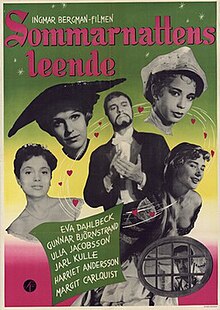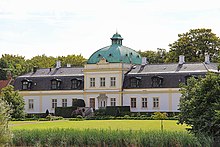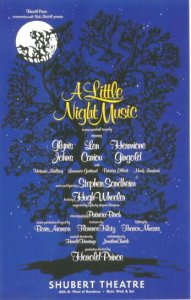
A Little Night Music is a musical with music and lyrics by Stephen Sondheim and book by Hugh Wheeler. Inspired by the 1955 Ingmar Bergman film Smiles of a Summer Night, it involves the romantic lives of several couples. Its title is a literal English translation of the German name for Mozart's Serenade No. 13, K. 525, Eine kleine Nachtmusik. The musical includes the popular song "Send In the Clowns", written for Glynis Johns.

Wild Strawberries is a 1957 Swedish drama film written and directed by Ingmar Bergman. The original Swedish title is Smultronstället, which literally means "the wild strawberry patch" but idiomatically signifies a hidden gem of a place, often with personal or sentimental value, and not widely known. The cast includes Victor Sjöström in his final screen performance as an old man recalling his past, as well as Bergman regulars Bibi Andersson, Ingrid Thulin, and Gunnar Björnstrand. Max von Sydow and Gunnel Lindblom also appear in small roles.

From the Life of the Marionettes is a 1980 television film directed by Ingmar Bergman. The film was produced in West Germany with a German-language screenplay and soundtrack while Bergman was in "tax exile" from his native Sweden. It is filmed in black and white apart from two colour sequences at the beginning and end of the film.

The Touch is a 1971 Swedish romantic drama film directed and written by Ingmar Bergman and starring Max von Sydow, Bibi Andersson, Elliott Gould, and Sheila Reid. The film tells the story of an affair between a married woman and an impetuous foreigner. It contains references to the Virgin Mary and the Holocaust.

Ansiktet, also released as The Magician, is a 1958 Swedish film written and directed by Ingmar Bergman, starring Max von Sydow and Ingrid Thulin. The plot follows a traveling magician named Albert Vogler, whose allegedly supernatural live shows are challenged by the skeptical population of a small village.

The Magic Flute is Ingmar Bergman's 1975 film version of Mozart's opera Die Zauberflöte. It was intended as a television production and was first shown on Swedish television on 1 January 1975, but was followed by a theatrical release later that year. The work is widely viewed as one of the most successful films of an opera ever made, and as an unusual item among the director's works. The film won the BAFTA TV Award for Best Foreign Television Programme in 1976 and was nominated for the Golden Globe for Best Foreign Language Film and the Academy Award for Best Costume Design.

Ingmar Bergman Makes a Movie is a 1963 Swedish documentary film directed by Vilgot Sjöman which depicts the making of Ingmar Bergman's film Winter Light from screenwriting to the film's premiere and critical reaction.

The Making of Fanny and Alexander is a 1984 Swedish documentary film directed by Ingmar Bergman which traces the making of his film Fanny and Alexander. Its running length is 110 minutes and it is photographed by Arne Carlsson. It debuted at the Swedish Film Institute on 16 September 1984, with Bergman in attendance to give a speech. It then aired with a television repeat of Fanny and Alexander in Sweden on 18 August 1986. In 2011 in Region A, The Criterion Collection released The Making of Fanny and Alexander on Blu-ray as part of their release of Fanny and Alexander.
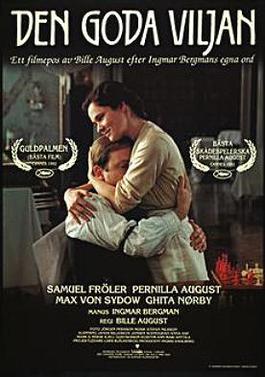
The Best Intentions is a 1991 Swedish television drama film directed by Bille August and written by Ingmar Bergman. It is semi-autobiographical, telling the story of the complex relationship between Bergman's parents, Erik Bergman and Karin Åkerblom, who are renamed Henrik and Anna in the film but retain their true surnames. The film documents the courtship and the difficult early years of their marriage, until the point when Anna becomes pregnant with their second son, who corresponds to Ingmar himself. Samuel Fröler and Pernilla August played Henrik and Anna, respectively.
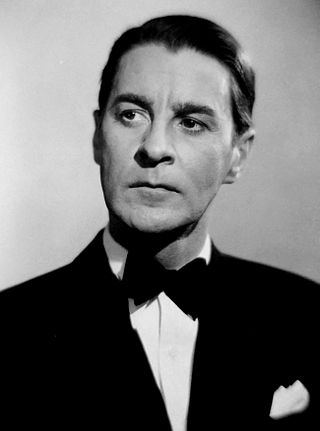
Knut Gunnar Johanson was a Swedish actor known for his frequent work with writer and director Ingmar Bergman.

Eva Elisabet Dahlbeck was a Swedish stage, film, and television actress. She received a Cannes Film Festival Award for Best Actress for her performance in the film Brink of Life (1958). Dahlbeck retired from acting in 1970 and became an author.

Secrets of Women is a 1952 Swedish film directed by Ingmar Bergman. It was screened within the official selection of the Venice Film Festival in 1953. It is a drama about youthful relationships, told in flashbacks by a group of women.
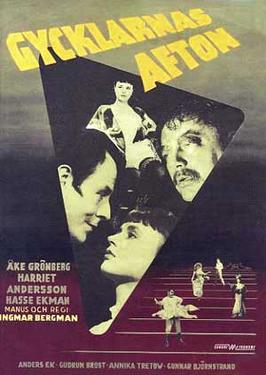
Sawdust and Tinsel is a 1953 Swedish drama film directed by Ingmar Bergman.

Naima Wifstrand was a Swedish film actress, operetta singer, troubadour, director and composer. In her later years, she was cast in several supporting roles in Ingmar Bergman films.

A Little Night Music is a 1977 musical romantic comedy film directed by Harold Prince, his second and final directorial role. The screenplay by Hugh Wheeler is adapted from his libretto for Stephen Sondheim's 1973 musical of the same name, itself based on Ingmar Bergman's 1955 film, Smiles of a Summer Night.

Fårö Document is a 1970 Swedish documentary film directed by Ingmar Bergman. It was shot on the island of Fårö and is about its inhabitants.
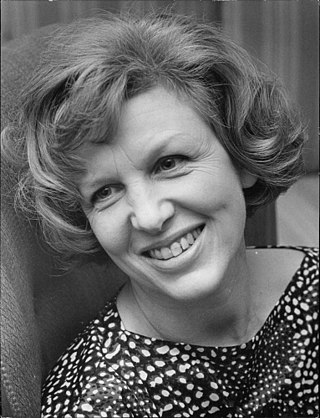
Gun Bergman was a Swedish translator, linguist, and journalist. Known for her translations from Slavic languages to Swedish, her greatest feat was her translation of Ivo Andrić's novel The Bridge on the Drina in 1960. She was married to Swedish film director Ingmar Bergman from 1951 to 1959.
Carl-Olov Skeppstedt (1922–1996) was a Swedish film editor. He edited more than ninety films including three films with Ingmar Bergman.
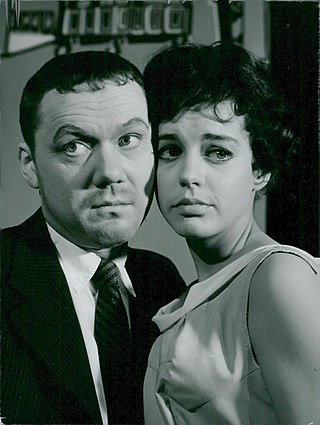
Elsa Prawitz was a Swedish film and stage actress.
Birgitta Steene (1928–2023) was a scholar at the University of Washington known for her work in Scandinavian Studies.
